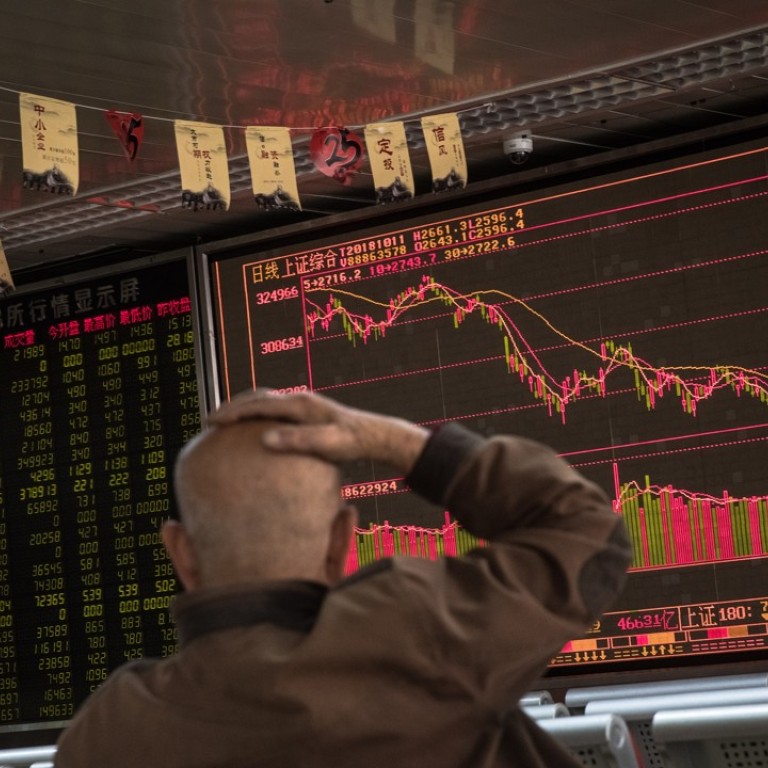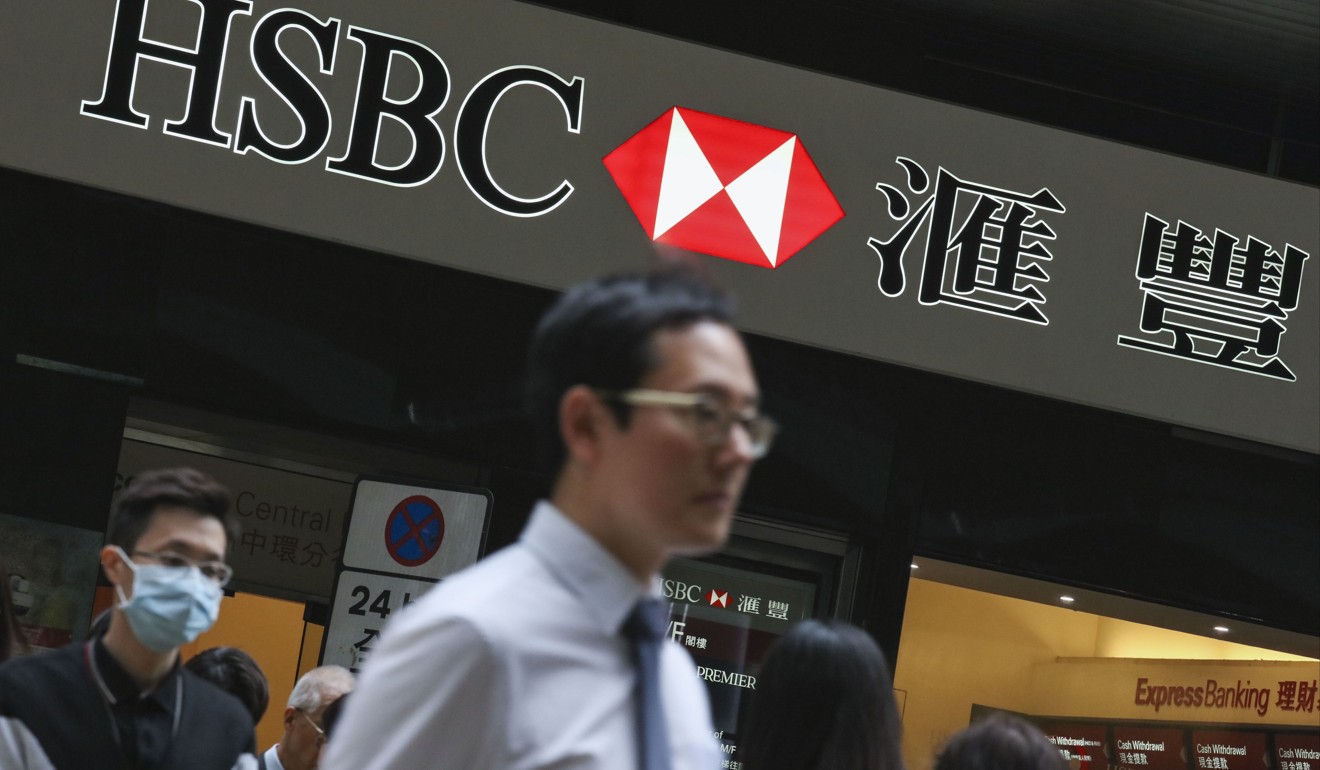
Chinese stocks resume declines as fear of poor third-quarter earnings grips investors
- The Shanghai Composite Index drops 2.2 per cent and another decline of 2.2 per cent will take the gauge back to a four-year low
- The Hang Seng Index ends a four-day losing streak as HSBC surges 5 per cent on strong earnings
China’s stocks resumed declines on Monday, as leading companies posted disappointing results, dimming the outlook for corporate earnings.
The Shanghai Composite Index fell 2.2 per cent as traders unwound their stock holdings, brushing aside measures recently unveiled by the Chinese government to bolster the market, after Kweichow Moutai, the world’s most valuable distiller, reported the slowest quarterly earnings growth for the July to September period in almost three years, and China’s biggest maker of wind turbines, Xinjiang Goldwind, posted lower profits.
The declines have jeopardised a nascent rebound that took hold after Chinese Vice-Premier Liu He and other top financial regulators pledged support to the nation’s beleaguered stock market.
Another 2.2 per cent drop will take the mainland’s benchmark again to a four-year low seen on October 18.
HSBC’s third-quarter earnings beat estimates, boosting CEO’s plan to revitalise Europe’s largest bank
Hong Kong’s Hang Seng Index bucked the decline, rising for the first time in five days, as HSBC Holdings jumped on stellar earnings growth.
Liu said this month that Chinese stocks were good buys because of valuations and the nation’s growth potential. That comment was followed by a barrage of measures from the central bank and the financial watchdogs to aid smaller listed companies facing liquidity crunch.

“Investors are looking to such bellwether companies as Moutai and Goldwind for clues to third-quarter earnings and they may have come to the conclusion that earnings on the whole could be ugly,” said Wei Wei, a trader with Huaxi Securities in Shanghai. “Even with the government efforts to prop up stocks, the market may not be able to hold up at this level.”
The Shanghai Composite retreated 56.74 points to 2,542.10, extending its loss for the year to 23 per cent and solidifying its position as the world’s worst-performing market.
The CSI 300 Index of big-caps tumbled 3.1 per cent and the ChiNext gauge of smaller companies lost 1 per cent.
All 10 industry groups on the CSI 300 closed lower, with the gauge tracking consumer staples plunging 8.6 per cent for the biggest decline.
Investors are looking to such bellwether companies as Moutai and Goldwind for clues to third-quarter earnings and they may have come to the conclusion that earnings on the whole could be ugly
Kweichow Moutai plummeted by the 10 per cent daily limit to 549.09 yuan. It was the first time in five years that the stock hit the lower limit.
The distiller’s third-quarter earnings rose 2.7 per cent from a year ago to 9.65 billion yuan (US$1.39 billion), a far cry from the 42 per cent growth in the previous three-month period, according to its quarterly results, as a slowdown in China’s economy starts to curb high-end consumer spending.
Wuliangye Yibin, Moutai’s smaller rival, and Jiangsu Yanghe Brewery Joint-Stock both fell 10 per cent to 48.87 yuan and 86.40 yuan respectively. Luzhou Laojiao slid 7.2 per cent to 35.60 yuan.
Xinjiang Goldwind tumbled 9 per cent to 8.65 yuan, the lowest close since September 2014. Its Hong Kong-traded stocks slumped 11 per cent to HK$6.16. The company’s earnings for the third-quarter dropped 24 per cent from a year earlier, marking a U-turn in its business recovery since the start of the year.
In Hong Kong, the Hang Seng Index gained 0.4 per cent, or 94.41 points, to 24,812.04, snapping a four-day, 5.5 per cent loss.
HSBC surged 5 per cent to HK$63.55, providing the biggest support to the Hang Seng Index, after the Europe’s largest bank reported a 32 per cent increase in third-quarter earnings.
The Hang Seng China Enterprises Index, or the H-share gauge, slipped 0.5 per cent.
Among the losers were mainland property developers. Their shares declined broadly after state media sent signals tamping down speculation that the government may relax measures intended to cool off home prices.
China’s troubled private listed firms offered billion-dollar bailouts
The official Xinhua news agency said in an article published on Monday that policies to curb home prices imposed beginning more than two years ago must not be “given up halfway”, even in the face of a slowing economy.
China Evergrande, the country’s third-largest developer by sales, slumped 3.4 per cent to close at HK$18.56. Sunac China, which ranked as the fourth biggest mainland developer last year, dropped 2.1 per cent to HK$20.55. And Longfor Group Holdings fell 1.6 per cent to HK$17.96.
Additional reporting by Yujing Liu

